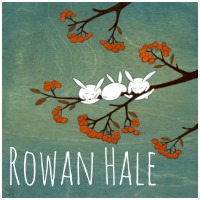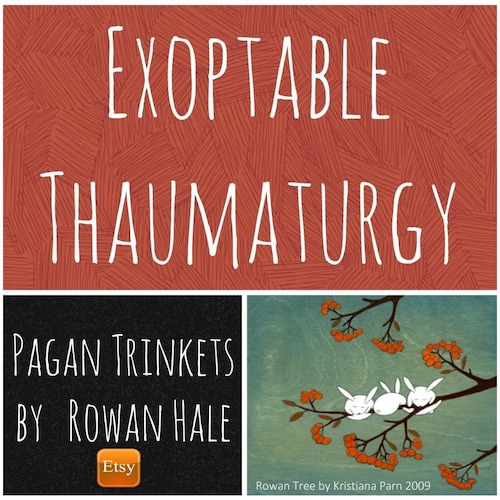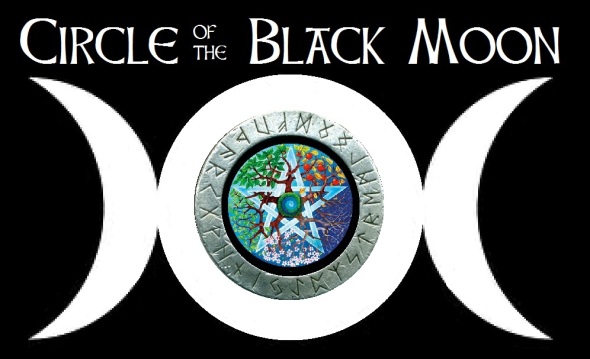Beyond Pagan 101
 Something I’ve noticed is that when you start browsing Pagan books, the great majority of them are ‘Pagan 101’ – what is is/means to be Pagan, how Pagans practice their faith, etc. I am a researcher by nature, and tend to be drawn to books on spirituality and on Pagan paths in particular. It’s been disappointing to see the same material rehashed over and over and over again: what Sabbats are, correspondences, dedication rituals and how to ‘be’ pagan – the very basics. Oh sure, it’s a little different; re-branded or spiffed up and published under a new name or path, but so much of it is the same basic, beginner material that you can find all over the place.
Something I’ve noticed is that when you start browsing Pagan books, the great majority of them are ‘Pagan 101’ – what is is/means to be Pagan, how Pagans practice their faith, etc. I am a researcher by nature, and tend to be drawn to books on spirituality and on Pagan paths in particular. It’s been disappointing to see the same material rehashed over and over and over again: what Sabbats are, correspondences, dedication rituals and how to ‘be’ pagan – the very basics. Oh sure, it’s a little different; re-branded or spiffed up and published under a new name or path, but so much of it is the same basic, beginner material that you can find all over the place.
I’ve been thinking about why that is; why so many books are ‘beginner’ style books for Pagan spirituality, and have come to several observations. First, I think that a lot of Pagan practice is ‘first generation’. People are dissatisfied with mainstream spirituality and they go exploring. Because there are so many different styles of Paganism, it’s hard to ‘pick one’, and so each style or path has its own interpretation of the Path. Additionally, there are different ‘branches’ of Paganism: Wiccan, Heathen, Asatru, Druidic, Dianic… the list goes on, each with their own specific way of doing things.
Secondly, as information and technology have increased access to information, the sheer volume of beginner Pagans has increased to the point that such a volume of beginner material is necessary. Since there are so many first generation Pagans, there isn’t a large population of people who have practiced long enough to move beyond basics. Although I know many who have been in practice for decades, a great many of those have switched paths or gone eclectic or solitary for lengths of time, and developed their own traditions, rituals and styles of practice and don’t feel the need to publish it publicly. Add to that the general consensus that Pagans don’t like to be told ‘what to do’ or ‘how to worship’, finding an open group to practice with can be extremely challenging, which leaves many/most new Pagans solitary.
Thirdly, of those who have practiced for extensive periods of time, they don’t feel the need to indoctrinate their children into their faith, allowing the children to find their own paths, as it were. Without that indoctrination, children who grow up Pagan may or may not feel the need to pursue their own spiritual path. I know several adults who were raised by Pagan parents and although they may be interested on the fringe, most tend not to practice actively, at least among the people I know in this situation. Obviously, that’s not true across the board, so no slight intended if you’re a third or fourth generation practicing Pagan. These are just my observations, and I’d be interested in hearing yours.
Though I understand these as logical explanations, and accept whatever other possible explanations there may be, they don’t mitigate the fact that the majority of Pagan-centered books available are beginner-level books. For those who have been practicing long enough to have personalized their faith and practice, investing in new books can be disappointing because even seemingly promising books end up containing only a little bit of new information. While I certainly do not claim any authority, I thought I would share some of the ways that I have found helped me to move beyond ‘Pagan 101’ and into a more deeply personal and meaningful practice.
One method I found to circumvent getting trapped in the newbie books has been to move outside of strictly Pagan-themed books and into history, philosophy and world religion books. (Side note: My path isn’t deity-centered, so if yours is, the same types of methods for researching and deepening your knowledge about your pantheon or deities applies.) Beyond a certain point, even the most devout reconstructionist Pagan practitioner is just making stuff up to fill in the gaps in whatever factual/historical recorded information they have managed to piece together. From that viewpoint, their opinion on how you should practice is no more authoritative than yours. Additionally, many strictly Pagan-themed books tend to be European in origin, which means that they may be making recommendations for alignments and correspondences for a different hemisphere, climate or botanical availability than where you;re practicing your path. I am a firm believer is adapting my practice to suit my environment and many nature or earth-based paths focus on that connectivity almost exclusively. It seems silly to try to find herbs or wood to work with that you wouldn’t have any personal connection with because you’ve never seen, touched or smelled it!
If your path is earth-based; hedge-witches, kitchen-witches, and the like, and herb-crafting is a big part of your practice, then you’ll only find a handful of information in your typical Pagan-themed herbal companions. Look into books on gardening – learn native flora and what grows best when. Growing your own herbs, flowers and plants can make them so much more effective when you need them to work and the connection that you have to your garden and materials is a big part of making your path come alive. Continue your education; learn about using plants as medicine, how to distill essential oils, and anything else that strikes your fancy from sources that aren’t strictly Pagan-oriented. If the only information you;re lacking is the magical correspondence, those are easy to find online. If food is your bag, then the same applies; research cooking and recipes; experiment with flavors and use herbs and ingredients that you grow yourself.
I’d also suggest researching folk magic – hoo-doo and root-work, Santeria, Native American religions and other types of old, earthy magic. Many of those types of religions can be hard to find information on, but it’s worth it when you do. If your ancestors come from those religions, then even more so. My personal task over the last year or so is considering how ancient holidays could be modernized. I have posts about Lupercalia and Matronalia, and will be doing similar posts this year. I may not get them ‘right’, but it’s been a fun experiment, and adds value to my practice.
Another way to find more meaning in your practice is just that – practice. If you are a new practitioner, especially if you’re coming out of a religion where Pagan things are taboo, then you may be reluctant to actually do the things that you’re reading about. Even if you’ve ‘been Pagan’ for a long time, but don’t practice, moving beyond the basics means getting your feet wet – sometimes literally (if ritual cleansing is part of your practice). If you haven’t found anything in what you’ve read that appeals to you, make something up! There’s no right or wrong way to do an Esbat or Sabbat Ritual; there’s no right of wrong way to perform a candle spell, or sage your house, or create an altar. Don’t be afraid to try something, whether it’s all written out for you or you make it up yourself. If it has meaning for you, then it works. I view my path as an ever-winding road, with new things to learn and try around every corner, and I’ve been practicing for twenty five years. Some things I’ve tried flopped entirely, some things worked for a time or were interesting to try out, but ultimately didn’t stick, while others have become a regular, essential part of my practice. our spiritual practice should add meaning and value to your life, even if it’s a simple ritual like lighting a candle and incense with your morning coffee.
My final tip for moving into a more mature practice is to connect with the Pagan Community. Not just online, but in person. If your local community hosts Pagan Pride Day, or has a ‘Pagans Night Out’ or other meet-up, make an effort to go. If you have children, look for (or organize!) a Pagan Playdate or Pagan Game Night. There’s a group in the Houston area of TX that hosts an Interfaith Tea & Game Night, and there are organizations like Celebration of Womanhood and Women Of Magic And Nature (WOMAN) that host retreats for Pagan women each year. Meeting the incredibly varied group of women at WOMAN for the last 2 years has been such a great way for me to learn and explore different paths and practice dynamics and has added to deepening the meaning and value in my own practice. Plus, it’s just plain nice to be around other people who have similar (even if very different) beliefs.
How have you moved beyond Pagan 101?
Brightest Blessings,


















Leave a comment